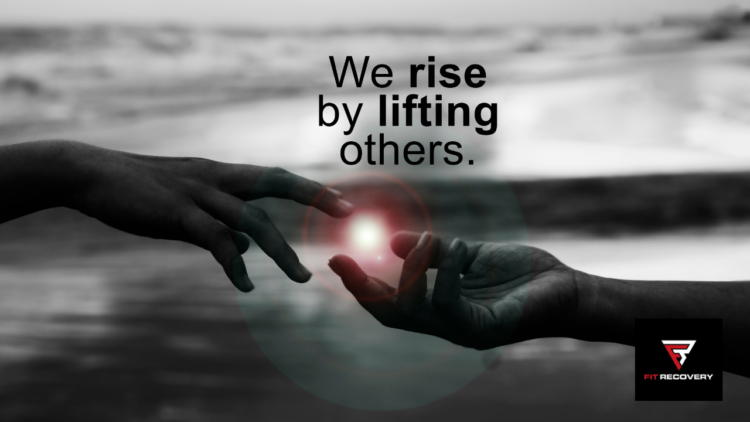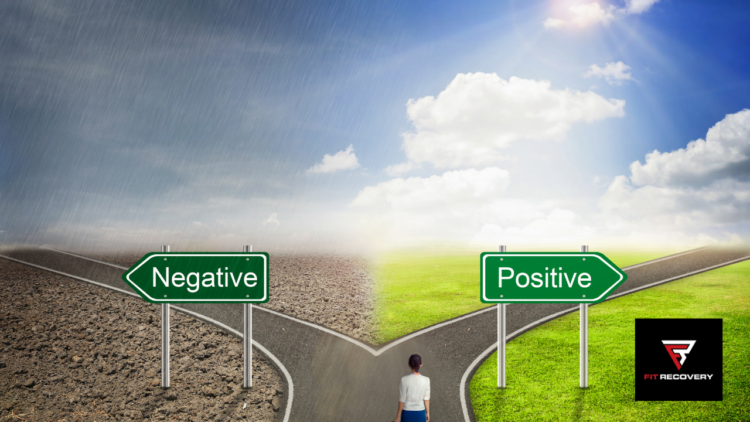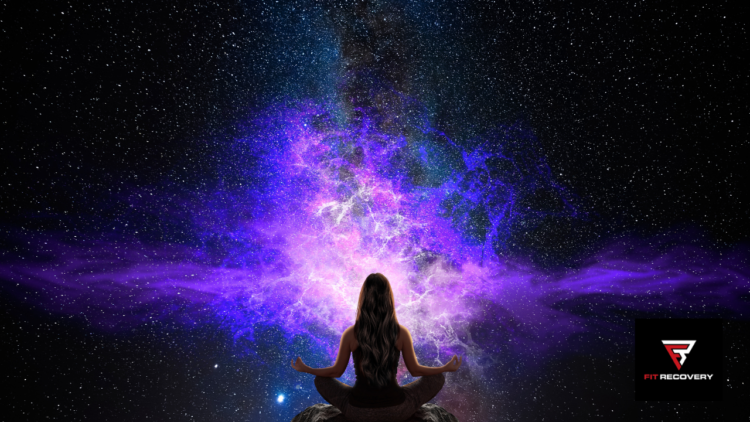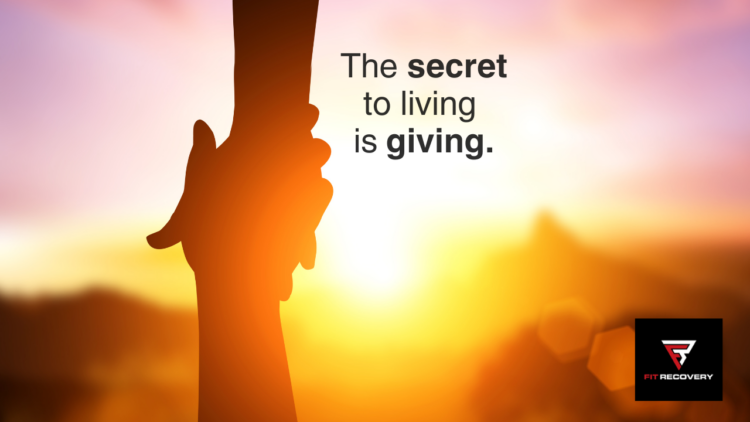
In this article, you’ll learn how the “Service-to-Others” strategy can help you transcend alcoholism and transform into your True Self.
If you’ve been unsuccessful in staying alcohol-free long-term and you’re willing to be open-minded, this approach could be the “missing link” that helps recovery stick for you.
And I know what you may be thinking…
“I need to get myself healthy, and I have enough problems. Why should I consider this service to others foolishness?”
If you keep an open mind and hear me out until the end of this article, I promise it’ll be worth your time.
Why?
The service-to-others path for staying alcohol-free can help you to:
- Quit Drinking
- Stay Alcohol-Free
- Find Your Purpose
- Elevate Your Consciousness
- Raise Your Vibration
- Create Lasting Fulfillment
- Live in a Beautiful State of Being
- and more
If you’re struggling badly with alcohol, I feel deeply for you because I know something about your unique challenges and fears as in the past, alcohol addiction devastated my life for so many years that I thought I was totally incapable of recovering from addiction.
And trust me…
If a “chronic relapser” with moderate generalized anxiety, severe social anxiety, trauma, low self-esteem, and a fixed/victim mindset like me can do it, truly anyone can.
That means that you can.
And with this “new strategy” (that is about to blow your mind), you’ll be well on your way to transcending alcoholism and transforming into your True Self.

Polarity in Consciousness
To properly explain service to others, we first need to discuss the concept of polarity. Polarity is an essential feature of contrast within the universe.
The more technical and precise definition of polarity – is the condition or circumstance of having two opposing yet complementary properties that attenuate one another so that 1) each may be experienced and 2) work may be done.
Here are some examples of fundamental polarities:
- Positive/Negative
- Male/Female
- Open/Closed
- Resist/Surrender
- Work/Rest
Polarity is present in everything… including consciousness.
These two poles of consciousness can be described as positive and negative, like the poles of a physical magnet, although more descriptive terms commonly used to describe consciousness polarity are “service to others” and “service to self.”
Another method of viewing polarities involves the dichotomy of radiation/absorption.
Positive radiates – negative absorbs.
Just as each individual contains a unique masculine/feminine, feminine/masculine energy balance, so does each person hold a ratio of service-to-self/service-to others, service-to-others/service-to-self.
Furthermore, the more you choose how to serve, the more your polarity is activated.

Characteristics of Unpolarized Consciousness
There is a third type, along with positive and negative, or service-to-others (STO) and service-to-self (STS) consciousness. This category is consciousness that is unpolarized (U).
Individuals in this category have not made a clear choice, either consciously or unconsciously, as to which path to stick with for life, service to others or service to self.
The unpolarized middle ground between the two poles of consciousness has been described as a “Sinkhole of Indifference.”
Here’s what author and service-to-others enthusiast Gary L. Bean says about this type of consciousness:
“The sinkhole of indifference is part of the fabric of our everyday lives and our global society. It is woven into our rampant consumerism, our economy and its many imbalances, our neglect for and exploitation of the planet, our many shallow and non-catalyst-using relationships, our insatiable search for distraction, escape, and entertainment, our confusions about ethics and values, our ways of organizing government and choosing leadership, our lack of unifying narratives, and our relationship with the whole.”
-The Ra Contact Resource Series
The main desires of unpolarized consciousness are for:
- Distraction
- Anonymity (or Conformity)
- Escapism
- Comfort
- Instant Gratification
Unpolarized consciousness typically leads to an unconscious lifestyle, leading to a feeling of deep apathy.
This apathy manifests in countless ways, including our global division and numbness/indifference to the dire needs of billions.
When making a decision, here is the analysis used by each of the three consciousness groups in humanity (service-to-others, service-to-self, and unpolarized):
- Service-to-others – Considers which path offers the most opportunity for service to all.
- Service-to-self – Considers which path offers the most opportunity for serving the self only.
- Unpolarized – Considerations are random – and most likely in the direction of comfort.

Service-to-Others vs. Service-to-Self Consciousness
In life, there is a “Choice” regarding how an individual will love, serve, and relate with the free will of self and others. As you’ll see below, the choice really is between polar opposites.
Let us examine the main differences between these two poles of opposing consciousness philosophies below.
Service-to-Others Consciousness:
- Free Will – This philosophy seeks to recognize, honor, and support the free will and sovereignty of others universally and unconditionally.
- Love – Seeks to radiate unconditional love and kindness to all beings.
- Service – Seeks to serve others and the self (or “service to all”)
Service-to-Self Consciousness:
- Free Will – This philosophy seeks to form a separation-based relationship to free will, concluding that the free will of another need not be respected, honored, valued, or supported. Seeks to manipulate, exploit, control, and enslave others for the sole benefit of the self.
- Love – Seeks to absorb the energy of others for selfish gain and only loves the self, period.
- Service – Does not seek to serve others; seeks to serve the self only.
Note: Perhaps the primary difference between service-to-self and service-to-others is how they seek to control (negative) or accept (positive) things in life.
The Path of Control vs. the Path of Acceptance
An individual with a service-to-others consciousness seeks radical acceptance of life as it unfolds, whereas someone negatively polarized seeks not to accept the present as it manifests and instead seeks to control everything and everyone, to rule, manipulate, and dominate at all costs.
Mother Teresa and Mahatma Gandhi are great examples of service to others, and Ghenkis Khan (pictured below) is the epitome of a self-serving-only consciousness.

The Service-to-Self Philosophy and Strategy
The passage below about the infamous Ghenkis Khan illustrates how the service-to-self philosophy thinks and acts. Please note that some of it is explicit; thus, you deserve a trigger warning.
Now that you’ve been warned…
According to Britannica.com:
“Genghis Khan’s personality was a complex one. He had great physical strength, tenacity of purpose, and an unbreakable will. At first he could not see beyond the immediate gains to be got from massacre and raping and, at times, was consumed by a passion for revenge. Yet all his life he could attract the loyalties of men willing to serve him, both fellow nomads and civilized men from the settled world.”
“Organization, discipline, mobility, and ruthlessness of purpose were the fundamental factors in his military successes. Massacres of defeated populations, with the resultant terror, were weapons he regularly used. His practice of summoning cities to surrender and of organizing the methodical slaughter of those who did not submit has been described as psychological warfare; but, although it was undoubtedly policy to sap resistance by fostering terror, massacre was used for its own sake.”
– The Brittanica Bibliography
Beware of “False Light” and “Wolves in Sheep’s Clothing”
Unfortunately, there are still people today who have Khan’s negative consciousness, although the service-to-self tactics are much different in our present age of technology, information, and artificial intelligence (AI).
Plus, unlike in Khan’s days, now it’s super easy for the service-to-self polarity to blend in and even project an external image of service to others, so be aware of “false light” (illusion of truth) and “wolves in sheep’s clothing.“

Now that you’ve learned the fundamentals of polarity in consciousness, it’s time to discover how service to others works in theory and practice.
After that, I’ll show you how to stay alcohol-free with a customizable service-to-others blueprint you’ll love.
Service to Others – The Positive Path
There are essentially two primary types of service to others. The first and most important is the service of being. What does this mean?
1) The Service of Being – Your Main Service
Believe it or not, the most primal service you can offer is to be yourself (authentically). You are the service.
Sometimes called the Ministry of Being (a term I learned from author Carla Rueckert), it’s the art of living fully and giving freely, with an open heart, expecting nothing in return, being aware of your needs, and radiating your high vibrational frequency outwards.
The service of being is rendered by radiating:
- Unconditional love
- Acceptance
- Forgiveness
- Compassion
Does the list of traits above look familiar? It should be because religions and spirituality have promoted the notion that we take up a “ministry of being” for thousands of years.
Additionally, by healing from addiction and transcending the lower levels of consciousness, you can raise your vibration so high that you radiate powerful energy and frequency that help lift the collective consciousness.
This is the Service of Being.
It’s your main service strategy for transcending addiction, transforming your life, and traversing the trials and tribulations of life on Earth.

2) The Service of Doing – Your Secondary Service
The secondary function of service to others is the service of doing. This requires some level of soul-searching and social placement. Additionally, being mostly balanced in body/mind/spirit makes navigating this process much smoother (and the antithesis is also true).
Each individual has unique talents, abilities, desires, and other characteristics, and finding a good fit for the service of doing can be subtle work that takes into account these special talents, etc.
For example, I’m innately creative, sensitive, and empathic. I love teaching, coaching, writing, and creating videos, podcasts, articles, courses, and other types of content that educate, empower, and motivate others and help them transcend addiction and transform their lives.
Helping others through a severe mind/body/spirit health challenge that I also faced and defeated (“addiction”) is deeply satisfying and fulfilling.
Another individual may be naturally artistic and invest her life in painting in a medium-sized Los Angeles studio.
Yet another may find his purpose and fulfillment cooking as the head chef of a 5-star restaurant in London.
Since the true act of service rests upon your attitude, you can do anything you want for a living and still provide massive levels of service to others (that positively polarizes your consciousness and helps you connect to cosmic power and universal truth).

How to Stay Alcohol-Free with Service to Others
Now that you’ve been trained in the nuts and bolts of consciousness polarity, it’s time to discover how to adopt and develop this polarity to stay alcohol-free for life.
And it’s quite simple (although far from easy).
For thousands of years, Buddhism, Judaism, and Christianity have taught the positive path in unique yet similar ways.
Religions and spiritual philosophies have served as moral and behavioral frameworks/blueprints for countless individuals over millennia of time.
How to Practice the Service of Being
Remember, your main mission is the ministry of being. You don’t have to do anything. You don’t need to save the world, become President, teach inner-city high school, earn a million followers, or anything else.
It’s all about radiating love for the Creator/God/Source/Universe/etc, humanity, nature, animals, and the cosmos, with radical acceptance for self and others.
Here are three strategies to optimize the “service of being” to transcend alcohol and transform your life:
- 1) Seek to embody and radiate:
- loving-kindness
- acceptance
- compassion
- forgiveness
- non-judgment
- generosity
- non-attachment
- wisdom
- 2) Daily balancing and tuning of your mind/body/spirit:
- Start each day with (and try to maintain throughout the day):
- deep gratitude
- forgiveness and acceptance of the self
- forgiveness and acceptance of all others
- love of the world, humanity, nature, animals, and the universe
- Start each day with (and try to maintain throughout the day):
- 3) Maintain a high-vibrational lifestyle:
- Seek to maintain consistent high-vibrational thoughts
- Focus on high-vibrational speech (outer and inner)
- Embody high-vibrational actions, behaviors, habits, and routines
- Focus primarily on high-vibrational foods and drinks
- Avoid spending too much time around low-vibrational people
Note: Until now, we’ve discussed the universal law or principle of polarity. Vibration is another law of the universe. Everything moves and vibrates, and nothing is at rest, including you, as humans are 99.99% vibrating energy despite looking like solid material. High vibration simply means high energy/high positivity.
As you can see, the ministry of being is simple in theory yet anything but easy in practice.
Service to Others in Sobriety (SOS)
It’s a lifelong path, the positive one, and programs like Alcoholics Anonymous (AA) help their members value and implement both the Service of Being and the Service of Doing.
However, the Big Book and other AA literature never call it such.
That being said, the service to others strategy is highly effective for keeping people alcohol-free both inside and outside of AA meetings.

In fact, during a 2010 study, the researchers investigated the sobriety benefit to alcoholic helpers and considered the helping activities to be salient to the recovery process. They provided psychometric findings for the scale “Service to Others in Sobriety (SOS),” a brief assessment on AA-related helping (AAH).
Here is a promising passage from the study, a true testimony to the power of service to others:
“A growing body of research shows evidence of the health benefits to helpers across the lifespan. Youths have been shown to enjoy lower levels of disciplinary problems, better values, and educational improvement as a result of volunteer work. Adults have been shown to enjoy greater happiness and life satisfaction, better social functioning, decreased depression and anxiety, and better mental health as the result of altruistic behavior. Older adults have been shown to enjoy positive affect, self esteem and social integration as well as increased longevity as the result of volunteering and providing instrumental and emotional support.”
-PubMed Central, Service to Others In Sobriey (SOS)
This is great news!
Why?
Answer: Happier adults who have more life satisfaction, better social functioning, decreased depression and anxiety, and better mental health are much, much, much, much less likely to return to a lifestyle of alcohol addiction.
How to Practice the Service of Doing
Unlike the Service of Being, the Service of Doing isn’t so simple. It’s a lot more subtle. Furthermore, it can cause pain and confusion if your intrinsic desire to serve others is high, but you cannot figure out “what you’re supposed to be doing,” e.g., your purpose, etc.
Fortunately, you’ve already learned so much, and now you’ll discover three principles that can help you harness the power of the service of doing, as well as what one of my mentors says about maximizing and optimizing your service to others and positive consciousness polarization.
Here is how to optimize the “service of doing” to transcend alcohol and transform your life:
- 1) Honor, value, and respect the free will of others. Free will is a primary law of the universe. The negative polarity doesn’t respect and infringes upon the free will of others.
- 2) Await the call to service. The positive polarity waits until someone asks for help. Someone with a self-serving-only consciousness will not wait. They do whatever they want whenever they want as long as it serves them, regardless of the outcome for others.
- 3) Harness the power of your natural talents and desires. When you can use your unique skills, talents, abilities, interests, and passions to serve and assist others, this is living out your dharma, your purpose. You’ll be happiest, healthiest, most fulfilled, and also most resilient and invulnerable to addiction when your service of doing is as described above. Unfortunately, the opposite is also true.
Here’s what transpersonal psychology and Buddhist meditation teacher and counselor Scott Mandelker, Ph.D., says about the service of doing:
“Once you’ve found your niche, in a line of expression compatible with your own skills and desires, the work becomes more subtle. Then it’s a matter of poise and skillful means, called upaya in the Buddhist tradition. Serving fully and freely, wisely and well, all the while keeping balance in body/mind/spirit. Questions at this point are more fine-tuned. What to give, how much to give, when to wait, how much you need, and how to embody universal consciousness in each particular situation.“
“These are more subtle issues that demand self-reflection and an ample dose of honesty with oneself. Here’s where meditation and some kind of group support are most helpful since they provide the inner depth and outer structure within which our individual purpose can be developed in society.”
– Universal Vision
Dr. Mandelker also has an excellent prescription for a “sprained personal purpose.”
“Just be yourself and offer freely to the world.”
He continues, “Just realize that what is offered in service is simply just you, which is why the very personal work of balancing mind/body/spirit and opening to total self-acceptance is so central to the path of service.”

How to Make “The Choice”
Many clients I’ve worked with are highly sensitive and empathic and abused alcohol to cope with the harshness of life. These individuals usually have kind and compassionate hearts and want to serve others, yet their addiction to alcohol or other drugs prevents them from doing so.
This was the case for me, too.
As a little boy in the 1980s, I felt strongly that I was supposed to serve humanity.
However… my purpose was thwarted when I was tempted by and temporarily joined the dark side (service-to-self-consciousness polarity, aka the negative path).
The negative path can be very seducing.
For a long time, I loved many of the “perks” of the negative path:
- abusing alcohol
- abusing illicit drugs
- abusing prescription drugs
- promiscuity
- hedonism
- infidelity
- admiration from my entourage
- significance
- materialism
- atheism
- nihilism
- power
- control
In addition to the list above, I took part in many other self-centered, self-seeking, self-serving, self-aggrandizing, self-promoting, self-gratifying, and selfish behaviors and endeavors while on the dark side of consciousness.
Fortunately, with the help of my family and some really good friends, I was able to quit alcohol and other drugs, and then I consciously chose to make it my life’s mission and purpose to help others free themselves from the chains of addiction, too.
I made “The Choice” (service to others/all instead of self-service only) in 2012 and deepened my choice four-plus years ago after a highly intense spiritual awakening.

Since then, I’ve polarized my consciousness more and more during the past dozen-plus years.
If you haven’t yet chosen the path of service to others and positively polarizing your consciousness, but you’d like to, all you need to do is choose.
Then, it’s a matter of simply daily practice.
What to practice?
The two functions of service to others, of course:
- The Service of Being – Be like a lighthouse, radiating light and acting as a beacon for all those lost in the dark trying to find their way.
- The Service of Doing: Use your unique talents, skills, interests, and desires to serve others while honoring their free will.
Note: It’s natural to associate more value with the service of doing. In our civilization, so much emphasis is put on getting things done and so little on just being. However, the service of being is the main service. When you become proficient at it, service to others becomes automatic, simply from being.
21 Ways Service-to-Others Helps You Stay Alcohol-Free
Staying alcohol-free is much easier when you’ve consciously chosen a service-to-all philosophy for life. The higher you ascend in awareness and consciousness, the less likely you’ll be to consume alcohol or use other drugs.
Additionally, a superabundance of compelling research-backed and anecdotal benefits are associated with serving others.
As you review this list of physiological, psychosocial, and spiritual benefits of serving others, imagine how it would feel to experience these benefits on a regular basis.
Next, imagine how easy it would be to avoid alcohol consumption under those conditions for your life.
A LOT easier, right?
Freedom from addiction goes from a possibility to a high probability when you’ve cultivated a service to others philosophy for life.
Contribution, along with Growth, is one of the primary needs of the spirit. You can survive without helping others, but it’s hard to thrive.
Here are 21 epic benefits of serving others, which can also help you stay free from addiction:
- Helping others feels good
- Benefit your career
- Brings a sense of belonging
- Helps keep things in perspective
- Increases your gratitude
- Bring fun into your life
- Increases your social skills
- Helps to encourage yourself
- Boosts happiness level
- Lowers blood pressure
- Increases your sense of purpose
- Honors God/Universe/Source/Cosmic Mind/Jesus/etc
- Reduces depression
- Community and connection
- Longer lifespan
- Teaches you valuable skills
- Reduces psychological distress
- Altruism is contagious
- Reduces sensations of pain
- Helps you create stronger friendships
- You become a glass-half-full type of person
The benefits of helping others are well-researched and documented. Additionally, as stated earlier, cotribution is one of the primary spiritual needs.
A segment of the population seeks to increase and optimize their service to others.
In fact, a global spiritual awakening is happening, with tens of millions waking up and ascending from the lower to the higher levels of consciousness, from separation to unity consciousness.

As people wake up, they learn that “the secret to living is giving.”
The Secret to Living is Giving
A famous Chinese proverb says, “If you want happiness for an hour, take a nap. If you want happiness for a day, go fishing. If you want happiness for a year, inherit a fortune. If you want happiness for a lifetime, help somebody.”
For millennia, the greatest thinkers have suggested the same thing:
“The secret to living is giving.”
-Tony Robbins
This is a quote I’ve heard Tony Robbins say while attending his personal and professional development seminars, Unleash the Power Within (UPW) and Date with Destiny (DWD).
Most recently, this saying is echoed in slightly different terminology in the title of Arnold Schwarzenegger’s new best-selling self-help book, Be Useful: Seven Tools for Life, where he writes about the importance of service to others.
10 Famous Quotes on “Service to Others”
There are countless inspiring and instructive quotes from famous people in history about service to others. All throughout human civilization, there has been the option to stay unpolarized in consciousness and to make “The Choice” between positive and negative polarity, commonly referred to as service to others and service to self, respectively.
Here is what historical figures on the positive path of consciousness and mind/body/spirit evolution have said about service to others:
- “Everybody can be great because everybody can serve.” – Martin Luther King Jr.
- “The best way to find yourself is to lose yourself in the service of others.” – Mahatma Gandhi
- “All other pleasures and possessions pale into nothingness before service which is rendered in a spirit of joy.” – Mahatma Gandhi
- “The more we give away, the more is given to us.” – Wayne Dyer, Ph.D.
- “Love in action is service to the world.” – Lynne Namka
- “Service to others is the rent you pay for your room here on Earth.” – Muhammad Ali
- “Those who are happiest are those who do the most for others.” – Booker T. Washington
- “Whoever renders service to many puts himself in line for greatness – great wealth, great return, great satisfaction, great reputation, great joy.” – Jim Rohn
- “As far as service goes, it can take the form of a million things. To do service, you don’t have to be a doctor working in the slums for free or become a social worker. Your position in life and what you do doesn’t matter as much as how you do what you do.” – Elisabeth Kubler-Ross
- “Everyone has a purpose in life and a unique talent to give to others. And when we blend this unique talent with service to others, we experience the ecstasy and exultation of our spirit, which is the ultimate goal of all goals.” – Kallam Anji Reddy

9 Helpful Resources on “Service-to-Others”
You’ve probably enjoyed this information since you’ve made it this far. If that’s the case and you’d like to learn more about serving others, this section can help you determine your next step.
I’ve carefully curated a selection of science, faith, spirituality, and self-help categories on serving others, and the books and videos below can help you plan your next action step now that you’ve learned about this meta-strategy for alcoholism recovery.
Recommended books on service to others:
- The Power of Serving Others: You Can Start Where You Are – by Gary Morsch
- Dare to Serve: How to Drive Superior Results by Serving Others – by Cheryl Bachelder
- Wonder Drug: 7 Scientifically Proven Ways That Serving Others Is the Best Medicine for Yourself – by Stephen Trzeciak, MD
- The Go-Giver: A Little Story About a Powerful Business Idea – by Bob Burg
- Winning with People: Discover the People Principles that Work for You Every Time, by John C. Maxwell
Recommended videos on service to others:
- What Role Does “Service to Others” Play In The Evolutionary Impulse – by Eckart Tolle
- The Power of Serving Others – by Joyce Myers
- Help Yourself by Helping Others | One of the Most Motivational Speeches Ever – by Simon Sinek
- How to Find Your Purpose – by Carl Jung
The books and videos above should provide plenty of variety, and if anything looks interesting, I encourage you to continue your studies and keep this momentum going.
15 Key Concepts on Service-to-Others for Alcohol Recovery
Now that we’ve come to the end of this piece, it’s time to review the key concepts, so you can grasp the fundamentals and understand the essence of serving others.
Don’t worry about trying to remember all of these fundamentals. You can always return to this article at another time, print out a PDF version, use a three-hole puncher, and then put the document in a small three-ring binder to safely and conveniently store your manual for future study sessions.
Alright, my friend, now it’s time to review!
Here are 15 fundamental concepts of service to others for alcohol recovery for you to meditate on:
- In life, you have a “Choice” regarding how you will love, serve, and relate to the free will of self and others. The choice is between serving others and yourself or serving just yourself (at the expense of others).
- There are three primary categories of consciousness, positive aka service-to-others, negative aka service-to-self, and unpolarized aka the sinkhole of indifference.
- The most common type is unpolarized; with this type of consciousness, considerations are random and most likely in the direction of comfort.
- Service-to-self consciousness seeks to infringe upon the free will of others, absorb the energy of others, and use others for selfish gain.
- The negative path (“the dark side of consciousness”) can be very tempting.
- Service-to-others consciousness seeks to respect free will unconditionally and universally, radiate loving-kindness energy, and serve others through the ministry of being and service of doing.
- The service-to-others philosophy, strategies, and tactics can help you transcend alcoholism and transform your life.
- The Service (or Ministry) of Being is simply being your authentic self.
- What is offered in service is just you. Thus, balancing mind/body/spirit and opening to total self-acceptance and unconditional love is paramount on The Positive Path.
- You can optimize The Service of Doing to stay alcohol-free forever by harnessing the power of your natural talents and desires. This results in lasting fulfillment and significant spiritual development.
- Staying alcohol-free is much easier when you’ve consciously chosen a service-to-all philosophy for life – and the higher you ascend in awareness and consciousness, the less likely you’ll be to consume alcohol or use other drugs.
- A superabundance of compelling research-backed and anecdotal benefits are associated with serving others.
- “Love in action is service to the world.” – Lynne Namka
- “The more we give away, the more is given to us.” – Wayne Dyer, Ph.D.
- “The secret to living is giving.” – Tony Robbins

Conclusion – It’s been a pleasure serving you…
Thank you so much for reading or at least skimming to the end. I appreciate and feel much closer to you now that we’ve taken this journey together.
It might’ve been a bit much to chew on (or maybe it was like drinking from a firehose), but the return on investment (ROI) from learning and implementing this material should be substantial.
As a former dark-side consciousness traveler, I can tell you that the light and the high vibrational frequencies you’ll experience on a daily basis while living a service-to-all existence are unfathomably more favorable than the former.
Take good self-care, give good self-love, radiate lovingkindness to all beings, forgive yourself, accept yourself, forgive others, and accept others.
Keep it Simple
To keep it simple, remember that you have two types of service. The main service is the ministry of being.
The service of doing is secondary and much less important than your primary service of radiating love, wisdom, and compassion, accepting life as it unfolds, moment to moment, and staying grateful and balanced in body/mind/spirit to the best of your ability as much of the time as possible.
If you have a comment or question about harnessing the cosmic power of the service to others strategy for staying alcohol-free, please feel warmly welcome and encouraged to post it in the comment box below this article.
Thanks, and I wish the absolute best for you, my new friend (and perhaps new brother or sister traveler on the Positive Path).





